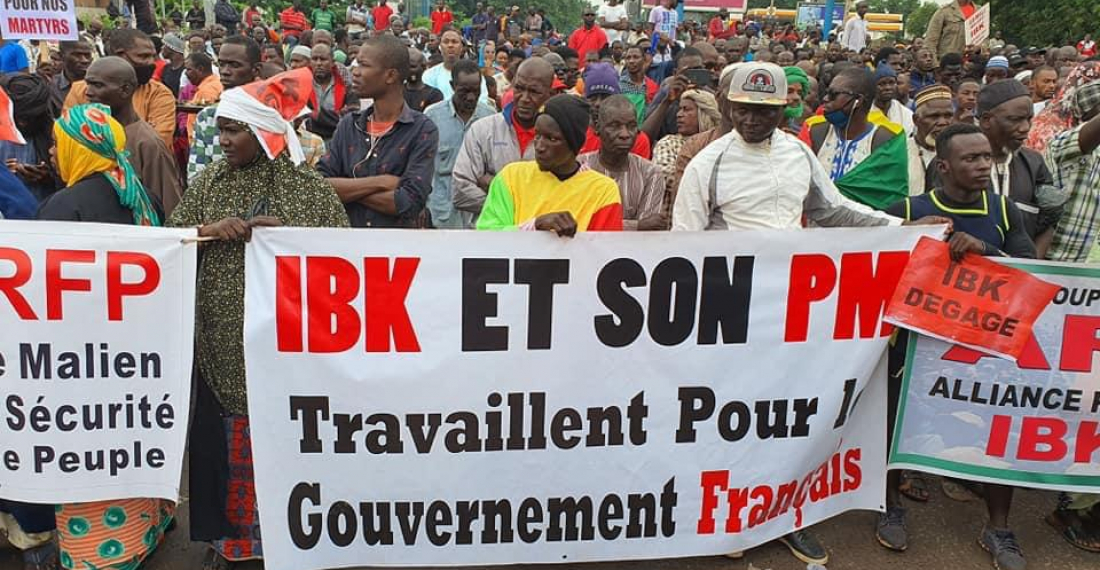In a press release on Saturday evening (4 September), Mali's interim government condemned a demonstration by armed police officers from the day before. The protest resulted in the release of the head of the Special Counterterrorism Forces, Divisional Commissioner Oumar Samaké, imprisoned for his alleged role in the bloody crackdown on the July 2020 protest.
On Friday, he became the first person to be detained as part of the investigation into the crackdown in the summer of 2020 of the protest movement under the presidency of Ibrahim Boubacar Keïta, since overthrown by the military.
However, Samaké – accused of murder over the deaths of at least 14 anti-government protesters in July 2020 – was only detained for a few hours in Bamako before being released under uncertain circumstances, after numerous police officers marched on his prison.
The special forces unit has received training from both the EU and the US to help in the fight against jihadist groups, which have been waging a decade-long insurgency in Mali.
A prison supervisor, Yacouba Touré, told Agence France-Presse (AFP) on Friday that the police had "come in large numbers well armed" to the central detention centre in Bamako. “We did not resist, they left with Ousmane Samaké without incident. "
An official from the justice ministry told AFP on condition of anonymity that, "for the sake of peace", the authorities had decided to have him released, without the police entering the prison.
The Malian Association of Human Rights (AMDH) also deplored the event, saying it was "deeply shocked" by Samaké's release under pressure and "vehemently condemns" this "serious attack on democracy and the rule of law".
The AMDH added that it was "scandalised" by the police's actions, as they "must enforce the law" and instead acted "illegally to obtain the release of a person imprisoned following a court decision". “AMDH is concerned that this situation will undermine ongoing efforts to fight impunity."
In Saturday's statement, the government asked "everyone to be reassured", assuring that the fight against impunity would continue.






